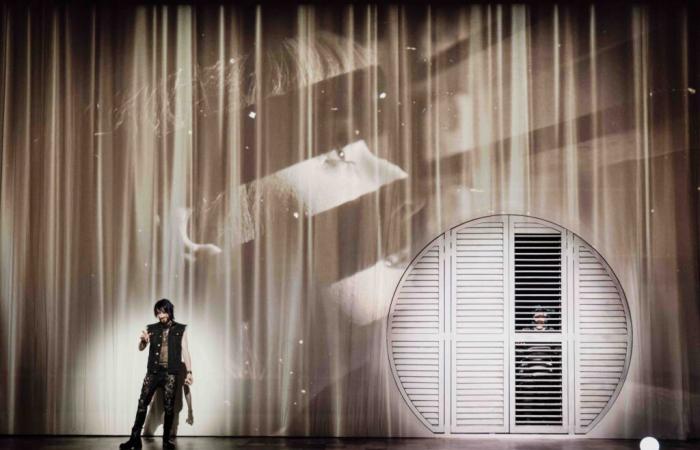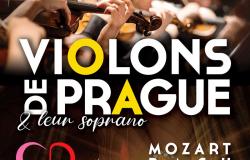
True to form, the Opéra national de Lorraine is offering a work for all audiences for the end-of-year celebrations. After a Don Pasquale amazing last year, here is the turn of Cinderellawhich had not been seen in the city since the 2008 production. The general theme of the 2024/2025 Season being placed under the sign of transgression, it is a staging very far from the vision of the Disney studios and the traditional fairy tale that we are treated to here, for a Cinderella rather punk and crazy.
Already invited to Nancy for a production of Enchanted Palace by Rossi who left his mark (also given in Dijon), Fabrice Murgia took advantage of Rossini’s well-oiled and rhythmic mechanics to bring out the cruelty of the situations and characters, in particular for Cinderella, inspired by the Gothic universe in cinema, between Carrie at the Devil’s Ball or one of the Beetlejuice heroines. The resulting visual universe is both trashy and stylized, between Tim Burton and the almost gory Tarantino who pays homage to the Z series. Faithful to his practice – which has become, so to speak, his trademark – the actor, director Belgian stage and director gives a large place to live video in the show. Two cameramen thus track the protagonists very closely, the images (very beautiful in fact) being projected onto a sphere evoking a full moon worthy of the most aesthetic zombie films. Fans will be reminded of the visual quotes throughout the opera. Alas, the abundance of references whose connection with our history we do not necessarily understand tends to clutter the mind. Too bad, there was plenty to do. Furthermore, the slight gap between the filmed image and its projection tends to distort and slow down the rhythm of the mechanics, although so well articulated, of Rossini’s work. Enough to potentially frustrate the viewer who no longer knows where to give their brains. That said, if we stick to the purely visual aspect, this bric-a-brac between Little Shop of Horrors and Frankenstein Junior has something to excite fans of horror cinema, from all eras. Everything has been designed not to disgust sensitive souls (the chainsaw is only threatening and the use of hemoglobin will hardly scare anyone, the blood essentially materializing in colored pearls). Note that during the second part, we became completely accustomed to the gently domesticated macabre of our little reconstituted Addams family and that we really take pleasure in observing our misfits at work, whose somewhat summary psychology corresponds roughly speaking, that of rebellious teenagers who are ultimately very sympathetic (we also understand why the sisters can no longer stand to hear the saw that is “Una volta c’era un re” in their mouths of Angelina…).
On the distribution side, we delight in the vocal qualities of this septet from whom we ask for the most acrobatic pyrotechnics and who pulls it off with mastery. The voices harmonize pleasantly with each other, which causes a jubilant pleasure to hear the expected group feats perfectly and smoothly carried out. The Scottish mezzo Beth Taylor impresses as a punkette Angelina who doesn’t let herself be fooled, supported by tousled coloraturas and an obvious natural authority that makes her stand out from the crowd. She is at ease in all registers and imposes herself in a demanding role which definitely fits her like a glove. The Italian tenor Dave Monaco is not left out. A suave and warm timbre à la Juan Diego Flórez, impeccable diction and apparent ease make him an ideal Don Ramiro. The two sisters are in tune, voices in unison in the entire register imposed on them: the mezzo Alix Le Saux and the soprano Héloïse Chicken are two terrible, stupid and wicked people of the most beautiful effect, impeccable, even sovereign. Sam Carl is an Alidoro which does not lack trunk or character, just like Alessio Arduiniastonishing Dandini, both endowed with an effective comical face. A little more withdrawn, but consistent with his role as a not very glorious father, Gyula Nagy however, managed to do well, especially in the ensembles.
The choruses, whether it is due to their makeup as zombies or victims of Hannibal Lecter, brains exposed, seem a little struggling in the first act, but we find them, at ease and in good shape as as usual, for a delectable number of freewheeling monsters. The orchestra of theNational Opera of Lorraine is at his best, remarkably guided by the Belgian-American guest chef Giulio Cilona. Once again, the Opéra national de Lorraine spoils us for the holidays.





